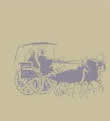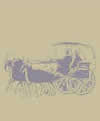2010年主题是:“博物馆致力于社会和谐
ICOM’s 22nd General Conference
Nov. 7-12, 2010
Shanghai, China
Theme Statement
“MUSEUMS FOR SOCIAL HARMONY”
Museums in the 21st Century are at the cross roads of major transformations in the global economy and environment. They are in a position to address the urgent need for safeguarding cultural Persity and bio-Persity as the common heritage of humanity. The preferred futures across the world are for Environmental, Cultural, Economic and Social Sustainability. Museums have a role to play as mediators in these transformations in promoting social harmony.
ICOM 2010 will be a critical milestone for intercultural dialogue to promote mutual respect and intergenerational ethic emphasizing practices for the inclusion of young people in museums. There will be a range of opportunities during the General Conference to scope, debate and plan creative approaches to change and develop responsible future directions as we strive to facilitate social harmony during times of rapid change and unprecedented development.
ICOM 2010 will bring together a range of expertise from across the world to encourage new models of collaboration that provide opportunities for members to contribute to museum development addressing all forms of heritage: tangible, intangible, movable, immovable, cultural and natural. The museum will be considered as a process, as a forum and as a construct.
There will be special emphasis on appropriate capacity building for promoting cultural exchanges and future project development.
ICOM 2010 will address urgent concerns for protection and safeguarding of all forms of heritage, especially in countries and regions where heritage resources are under threat due to armed conflict, famine, climate change, illicit traffic and tensions between conservation and development.
How can we increase the quality of professional services in museums, giving priority to capacity building at all levels, especially in what relates to the basic museum functions: documentation, research, conservation, communication and education. How can we stimulate better and wider access and use of the knowledge generated by ICOM? ICOM 2010 will provide a platform to share and critique demonstration projects by participants from culturally and linguistically Perse backgrounds. It will be a forum for developing innovative and inclusive conceptual frameworks for working across different cultures in a dynamic and changing environment. There are multiple perceptions and perspectives of what is harmony. The multiple voices of different participants will inform discussions to promote a culture of world peace. ICOM 2010 will raise the level of awareness of the importance of the purpose of museums and their role in fostering approaches and ideas to promote social harmony and inclusion.



